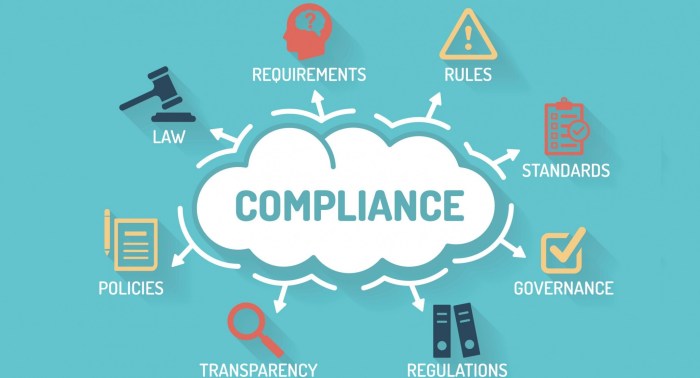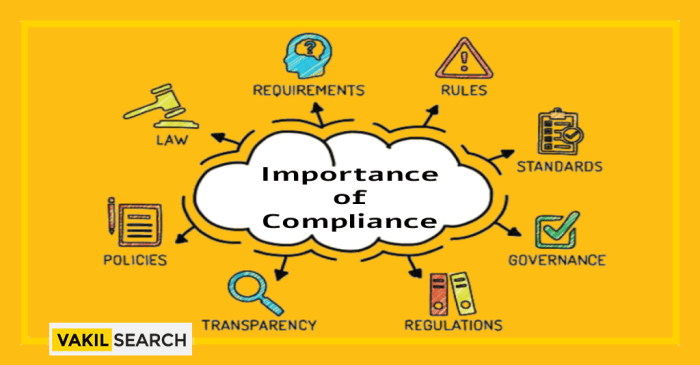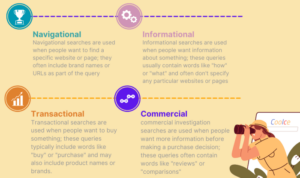Online Business Compliance is a critical aspect of sustainable operations, ensuring adherence to legal requirements in the digital realm. Let’s dive into the key regulations and strategies that shape the online business landscape.
Importance of Online Business Compliance

Online business compliance is essential for sustainable operations in the digital world. Ensuring that your online business meets all legal requirements not only protects your company but also builds trust with customers and partners.
Legal Requirements for Online Businesses
Online businesses need to comply with various legal requirements to operate successfully. Some examples include:
- Privacy laws such as GDPR and CCPA that govern the collection and use of customer data.
- Intellectual property laws to protect trademarks, copyrights, and patents.
- Consumer protection laws that regulate online advertising, sales, and warranties.
Consequences of Non-Compliance
Failure to comply with online business regulations can have serious consequences in the digital landscape. Some of these consequences include:
- Legal penalties and fines that can impact your bottom line.
- Damaged reputation and loss of trust from customers and partners.
- Lawsuits and legal disputes that can drain resources and time.
Key Regulations for Online Businesses: Online Business Compliance

Online businesses are subject to various regulations that govern their operations to ensure compliance with legal standards. These regulations play a crucial role in safeguarding consumer rights, protecting data privacy, and ensuring secure online transactions. Let’s explore some of the major regulations that online businesses need to adhere to:
GDPR (General Data Protection Regulation), Online Business Compliance
The GDPR is a regulation that aims to protect the personal data of individuals within the European Union (EU). It requires businesses to obtain explicit consent for data collection, provide transparent privacy policies, and implement security measures to safeguard personal information. Non-compliance can result in hefty fines, making it essential for online businesses to prioritize data protection.
COPPA (Children’s Online Privacy Protection Act)
COPPA is designed to protect the online privacy of children under the age of 13. It requires websites and online services to obtain parental consent before collecting personal information from minors. Online businesses must ensure compliance with COPPA by implementing age verification mechanisms and obtaining parental consent for data collection.
PCI DSS (Payment Card Industry Data Security Standard)
PCI DSS sets forth security standards for handling payment card information to prevent data breaches and fraud. Online businesses that process credit card payments must comply with PCI DSS requirements, such as encrypting payment data, securing networks, and conducting regular security assessments. Failure to comply can lead to financial penalties and reputational damage.
How Online Businesses Can Ensure Compliance
To ensure compliance with these regulations, online businesses should prioritize data protection, privacy policies, and security measures. Implementing robust cybersecurity protocols, conducting regular audits, and providing staff training on data privacy are essential steps to mitigate risks and maintain compliance. Additionally, seeking guidance from legal experts and staying informed about regulatory updates can help online businesses navigate the complex landscape of online regulations effectively.
Implementing Compliance Measures
Implementing compliance measures for an online business is crucial to ensure adherence to regulations and maintain trust with customers. By developing a tailored compliance strategy and utilizing tools and technologies for monitoring, businesses can effectively navigate the complex landscape of online regulations.
Developing a Compliance Strategy
- Conduct a thorough review of relevant laws and regulations applicable to your industry and location.
- Identify potential risks and vulnerabilities in your online operations.
- Create detailed policies and procedures outlining how compliance will be achieved and maintained.
- Train employees on compliance requirements and regularly review and update your strategy as laws evolve.
Tools and Technologies for Monitoring Compliance
- Implement compliance management software to automate tracking and reporting of regulatory requirements.
- Use data encryption tools to protect sensitive customer information and ensure data security.
- Utilize monitoring systems to detect and respond to any compliance breaches in real-time.
Best Practices for Implementing Compliance Measures
- Regularly conduct internal audits to assess compliance levels and identify areas for improvement.
- Establish a culture of compliance within your organization by promoting accountability and transparency.
- Engage with legal experts or consultants to stay updated on changing regulations and best practices.
Training and Education on Compliance
It is crucial to educate employees about online business compliance to ensure that they understand the regulations and guidelines that need to be followed. This helps in creating a culture of compliance within the organization.
Methods for Conducting Compliance Training
Implementing compliance training within online organizations can be done through various methods to ensure that employees are well-informed and up to date with the latest regulations:
- Online Courses: Utilizing online platforms to provide interactive courses on compliance topics.
- Workshops and Seminars: Conducting in-person training sessions to engage employees and address specific compliance issues.
- Regular Updates: Providing regular updates on compliance regulations through newsletters, emails, or internal communication channels.
Benefits of Regular Training
Regular training sessions can help mitigate compliance risks and enhance overall operations in the following ways:
- Increased Awareness: Employees become more aware of compliance requirements and the importance of adhering to them.
- Improved Compliance: Regular training helps in reinforcing compliance practices and ensures that employees follow the necessary guidelines.
- Enhanced Efficiency: By understanding compliance regulations, employees can work more efficiently and avoid costly mistakes.





